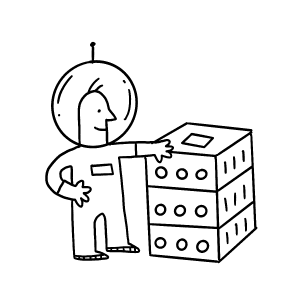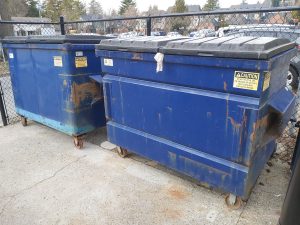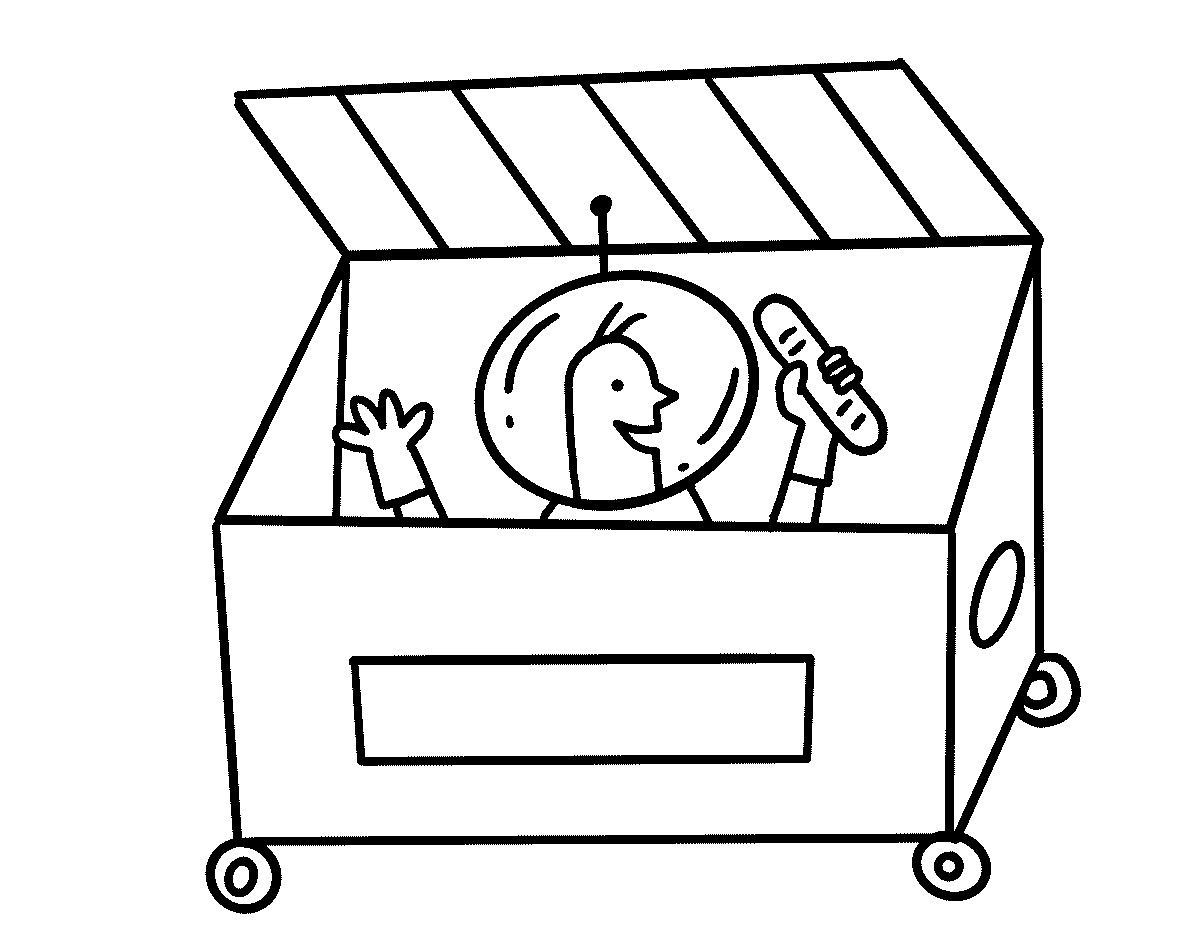Welcome back to the DIY series all you wonderful punks and weirdos. This issue’s edition is all about getting stuff for free. As the cost of living crisis seems to have no cap in sight, I feel we need this more than ever. And, as someone who has been urban scavenging for years, it’s time to pass on a few tips for all you out there who may be curious about the world of urban scavenging.
First things first — even though you may be digging through literal garbage to survive, you aren’t the only one. We all have to work together to get through this, and so, a small code of ethics ensures we all get enough. But also that we don’t get caught, or risk ruining a resource permanently.

Honourable Harvest (recommended reading Kimmerer – Braiding Sweetgrass)
It may be hard and unpleasant to hold to these rules, but if you think of the person before you as having ensured you got enough and that it would be in good shape for you, it makes it easier to maintain. Heed these hood harvesting requests, o’ weirdos.
- Take only what you need.
- In plant foraging, never take the first nor the last.
- Respect what is given to you as if it were your friend, and give in reciprocity.
- Take only what is offered.
- Leave the source in better condition than you found it. If you make a mess, you risk losing it.
The Scavenger’s Top Five Sources
There are a million places you can find free things, from street corners to green spaces, back alleys to best friends, you just have to know where to look. Here are my top five sources for free things I recommend any urban scavenger familiarize themselves with;

Free Piles: A ‘free pile’ is where unneeded stuff goes to languish in the Vancouver rain. They are an excellent source for slightly damp materials. If you have the patience to wash and clean things thoroughly, you can find pretty much every basic thing you need. You can find them everywhere in residential areas, and they offer goods which are still good —like a DVD player you didn’t know you needed, or a fine selection of kitchen utensils. The furniture might be a little fucked up (and you need to be careful about mould and bedbugs) but it’s free to those willing to make it work. There are also often clothing which can be punked up or turned into patches, shoes that might fit, and backpacks if you’re lucky.

Urban Foraging: Remember, we have been picking our food straight from nature for longer than we’ve been humans. This goes hand in hand with guerrilla gardening; the art of planting seeds for edible plants throughout the city. It might not feed you now, but you can look forward to that harvest right before it gets cold. Here in Vancouver there are berry bushes, fruit trees, and wild herbs are all available across urban green spaces if you learn to recognize them. However, you can straight up die if you’re not careful. Have someone who knows plants teach you how to identify things safely, or stick to apples and plums. There is also a real possibility of contamination, so don’t get your food from the side of a busy road or the dog park. You can find it elsewhere. Remember, you can preserve almost anything you find, I recommend going to your local library and picking up a book on canning or dehydrating.
E-Waste Bins: The sleeper hit of the urban scavenger’s toolkit — you can find e-waste bins in many places across the urban environment, and they sometimes have whole functioning computers you can simply take and use. These bins, however, are extremely sensitive environments. You have to be extremely careful here, don’t just rip through things pulling out pieces to sell because someone might not have a computer at all, and no one can use a destroyed computer. These spots are good for things like screens, desktops, laptops, ram, graphics cards — the works. Just don’t expect to run Super HD Video Game de jour. Using found parts requires a bit of knowledge on how electronics work, how to assemble and disassemble, but information is easy to come by. I once found an entire electric typewriter, and a reel-to-reel recording device. So keep looking and you will be rewarded.
Construction Site Refuse: If you’ve ever been near a construction site you know how much garbage they make. That garbage is often useful if you’re willing to put the effort in. Just be careful around rusty nails, and keep up to date with your tetanus shots. Lumber, nails, sheet metal, flooring, roofing, you can find it all, and use it to build whatever your heart desires. You will probably also find discarded tools from time to time, especially hand saws. They may be a bit dull, but you can always find another one. It’s enough to get you off the ground.Might need a vehicle unless you’re ripped — this stuff ain’t light. Just try hard and believe in yourself… or grab a friend who’s down to get their vehicle a little dusty.

Dumpster Diving: You all know what a dumpster is, big metal box behind a building. What you might not know is that they are full to the brim with goods galore. You need to be careful with this one, as it can be frowned upon or possibly illegal, but I trust your judgement. There are two different kinds; Commercial and residential dumpsters. Commercial Dumpsters are likely to have food not able to be sold — but still perfectly fine to consume — or goods they couldn’t sell. They are likely to be guarded or at least watched, so you have to be aware. Sometimes they are locked shut, or have compactors. Do NOT get into a compactor, no matter what. Residential dumpsters are neighbourhood-bound and they include finds such as recycling — which gives you so much to work with. Need jars for leftovers? Need paper for writing on? Need boxes for storage? Recycling has your back. One might also find: Excess housewares, pots, pans, spoons and cutting boards. If you’re willing to wash them, they’re yours! If you find something with burnt-on gunk, you can always boil it with a bit of vinegar or baking soda until it comes clean. Karens are never far from housing, so make sure to keep your eyes peeled for someone ready and willing to yell at you for being poor.
There’s so much more for you to find, but I hope these simple tips keep you fed, clothed, and going ever forward in this cyberpunk dystopia it is becoming harder and harder to ignore. Keep your eyes peeled, your mind open, and your pockets full. We’ll get through this together.


